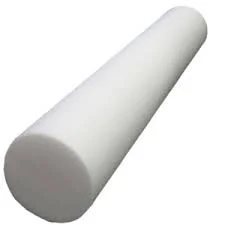I really enjoy studying biomechanics. I find it totally fascinating to learn, for example, that a certain muscle is very well suited to stabilize a joint, but not to move it through a large range of motion; or that it is active in one movement but not another; or that it becomes atrophied in people with chronic pain. I think this kind of detective work is very cool and I always look forward to applying it to help one of my clients. But that is where things get frustrating, because with biomechanics, as with so many other subjects, the more you learn, the more you realize you don't know as much as you would like to know. And sometimes you don't know enough for your treatment protocols to make any sense.
Read MoreSteven Pinker has a thought provoking article out this week called Science is Not Your Enemy. I hesitate to link it, because it discusses politics and religion, which are not the topics of this blog. So, fair warning and read at your own risk! But it had so many great thoughts on anti-science attitudes that I wanted to include some quotes. I have noticed that some of my colleagues in the bodywork community are somewhat disapproving of using a scientific approach to understanding how the body responds to manual therapy. It is almost like the very mention of science brings a bad smell into the room.
Read MoreThis weekend I had the pleasure of attending a workshop hosted by Geoffrey Bove on “Pain, Nociception and Nerves.” Geoff has forgotten more about these topics than most people will ever know, because he has conducted a great deal of the original research which contributes to our knowledge about these issues, particularly as it relates to manual therapy.
Read MoreMoshe Feldenkrais said that to "correct is incorrect." He was referring to efforts to correct someone's movement patterns. Which is kind of a strange thing to say for a guy whose method was largely about making people's movement more efficient. What did he mean and what does this say about efforts to correct movement? I think his message is that it is preferable to show clients different options or choices for how to move, than to tell them their current movements are wrong and require correction.
Read MoreI've been a little bit slow to post these days, and that is because I'm in the process of writing a book. Exciting! The book will synthesize and expand on many of the topics that I have written about on this blog. Namely, the art and science of how to move better and feel better, from a "neurocentric" perspective.
Read MorePanjabi divided the motor control system for the spine into three distinct subsystems - passive, active and neural. I like applying this idea to the whole body, partly because I find it an interesting way to distinguish different strategies for movement and posture, based on preferential use of one subsystem over the others.
Read MoreFoam rolling is very popular. Athletic trainers use it as a part of the warm-up. Physical therapists use it as part of their treatment strategy, often to improve extensibility of “short” tissues. There is very limited evidence about what benefit, if any, foam rolling confers. But there are a few studies showing it leads to short term increases in range of motion that are not accompanied by strength loss. (This is interesting because stretching interventions tend to show increased range of motion that are associated with a loss of strength and power.)
Read MoreMany of my clients will ask my opinion about whether a particular sport or activity promotes movement health. Yoga, running, swimming, weight training, ballet, soccer, gymnastics, crossfit. (People are especially interested in whether these activities will be healthy for their kids.) It’s an interesting question because almost any physical activity you can think of has costs as well as benefits.
Read MoreI have previously written about the importance of visual processing for athletic performance. I just came across a video demonstrating the unbelievable (I mean that literally) visual skills of a world class athlete, via the excellent Axon Sports blog. In the video, sports scientists test the visual processing of Christiano Ronaldo, one of the worlds best soccer players. (By the way, Ronaldo was a top contender for my world’s greatest athlete.)
Read More

